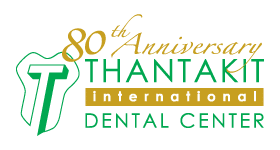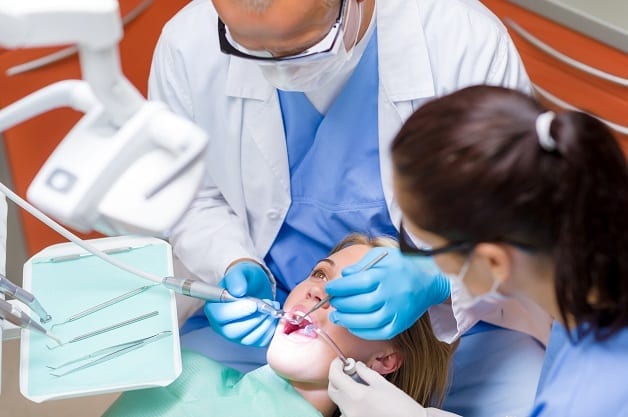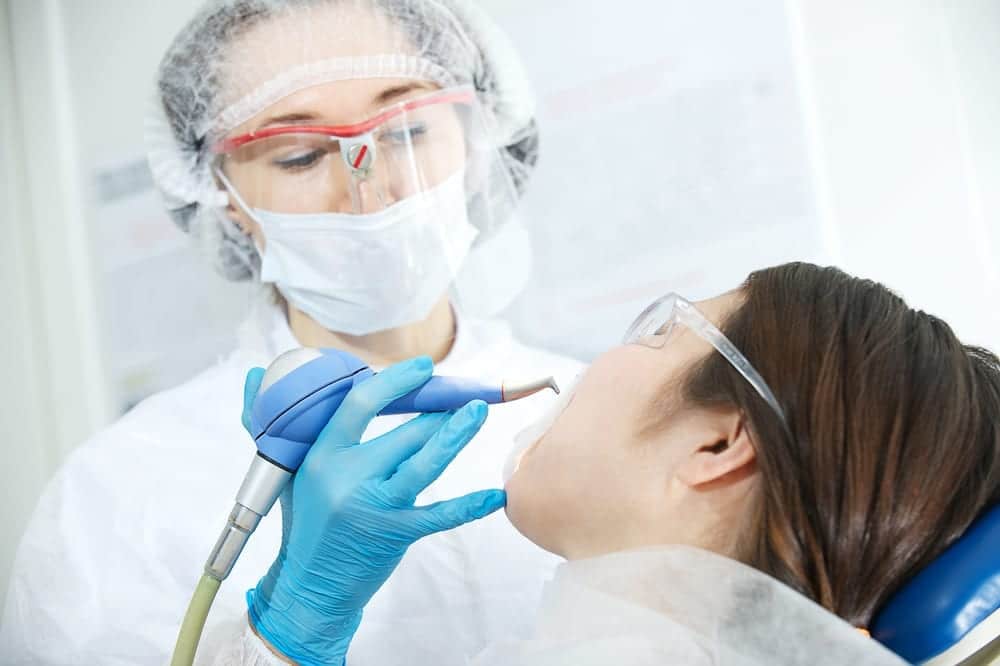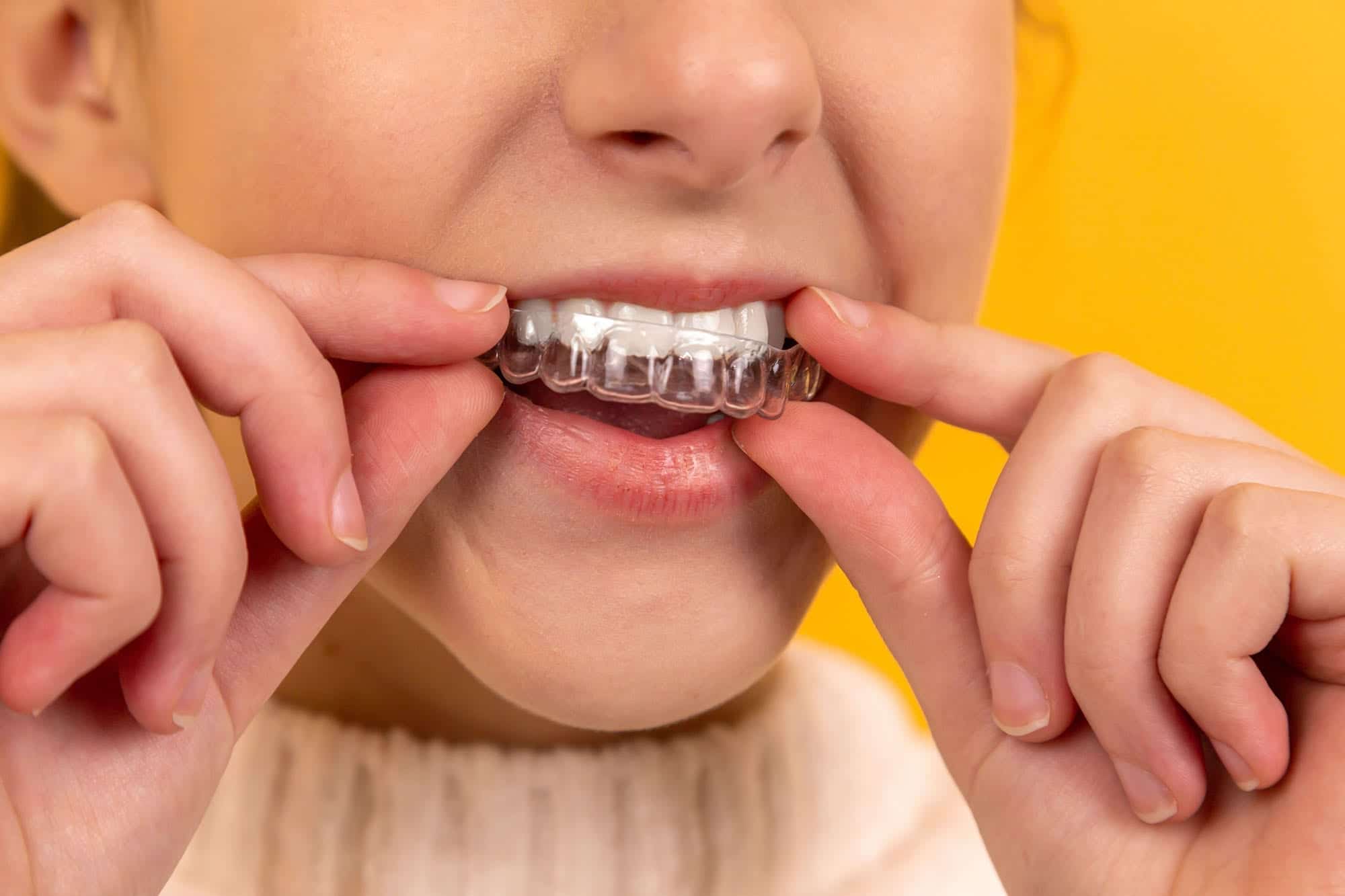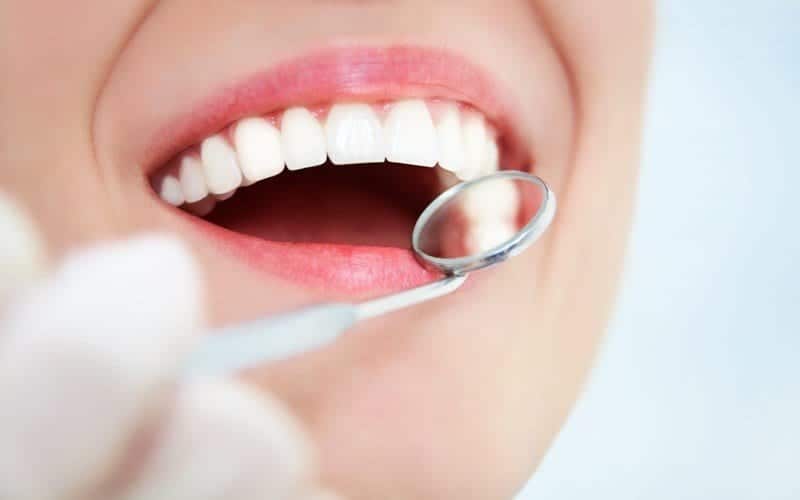Proper nutrition isn’t only good for your body in general. It’s also specifically a must for your teeth and gums. That well-balanced diet that keeps your internal and external bodily systems healthy can also affect your means of getting those nutrients for the sake of health and wellness, which are the oral portions of your digestive system and the mandibular/maxillary portions of your musculoskeletal systems.
More to the point, when it comes to certain diet options, your mouth may have a difficult time resisting infection on some types of food compared to others. This is because one of the first things that a low-nutrient diet will affect is your mouth and teeth.
Page Contents
Why Does Nutrition Affect Oral Health?
Here are the various ways that nutrition and diet can affect your oral health.
- Poor Diet and Oral Hygiene: Tooth decay and gum disease can be caused by a poor diet along with poor oral hygiene. Food high in starches, sugars, and carbohydrates are particularly responsible for tooth decay and gum disease, especially if you don’t brush your teeth regularly to get rid of the food remnants. You can also gargle antibacterial/antiseptic solutions like mouthwash to kill off the acid-creating bacteria.
- Bacteria and Plaque Acid: The leftover particles of starchy, sugar-rich, and carb-filled food typically encourage the development of bad bacteria in your mouth. Their waste products after eating all that food then results in plaque acids that attack the tooth enamel itself. The acids then eat away at the enamel, breaking the hard covering down and forming a cavity or hole in your teeth. Once the root is exposed, this could lead to tooth inflammation and pain.
- The Dangers of Sugary Foods: Foods containing sugars of any type can result in tooth decay. Almost all foods, including vegetables and milk, have some type of sugar with them. Nevertheless, they’re required for the sake of having a complete and healthy kind of diet. In order to control your sugar consumption, avoid junk food and fast food. You should also read food labels and eat food and drinks that are low in additional sugars for the sake of your own oral health.
- Nutrition for the Enamel: What’s more, even if you brush your teeth everyday, if your body isn’t getting the right nutrients it can lead to the degradation of your dental and oral health along with the rest of your bodily healthiness. You need to balance out your diet in order to maintain your complete set of teeth and the wellbeing of your gums. You particularly need calcium-rich or protein-rich foods to help with the reinforcement of deteriorating teeth enamel.
A Healthy Food List for Your Mouth, Gums, and Teeth
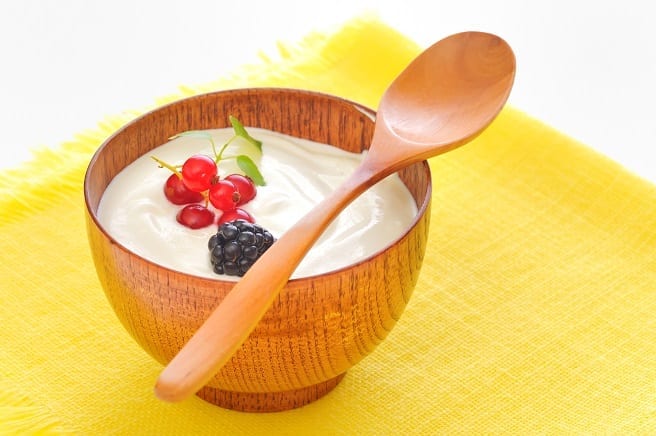
Your oral health is the first thing to decline when your diet is less than ideal, so says ADA or the American Dental Association. If you consume sugary foods, excessive desserts, and loads of soda and candy, your teeth will naturally suffer. You should therefore have a food list handy to improve your oral health through proper diet.
- Cheese: If you’re one of many out there who love consuming this dairy product made from fermented milk, then you’ll love to know that there’s another reason to enjoy this tasty treat. According to the General Dentistry journal’s issue for May/June 2013, there’s a study reporting that cheese raises a person’s oral pH. This study has also been reported by “EurekAlert!” and the American Academy of General Dentistry journal.
Why is this significant? It’s because it kills plaque-acid-causing bacteria, which in turn lowers your tooth decay risk. The chewing you need to do in order to eat the gooey or gummy texture of cheese increases saliva production, which also helps in clearing out any leftover food in your mouth. Cheese also contains protein and calcium, which are the nutrients needed to strengthen your teeth’s outer covering.
- Yogurt: Yogurt, which some cheeses are made from, is also high in protein and calcium. If you can’t stand eating cheese because of its texture and smell, the probiotic yogurt and its creamy goodness should serve as a good fermented substitute. Speaking of probiotics, yogurt is filled with good bacteria that you want to get into your body.
Probiotics is the opposite of antibiotics and involves making you feel healthier than ever before by increasing the (beneficial) bacteria count in your body instead of killing them all with bacteria-killing pills. Your gums can also benefit from the beneficial probiotic bacteria because it crowds out the bad bacteria that cause plaque acid and cavities. Add more yogurt to your diet, particularly the no-sugar variety.
- Leafy Greens: Many healthy food lists and diet plans include leafy greens into their mix. Humans are after all omnivores and can also eat plants for sustenance along with meat. Most importantly, they’re filled with vitamins and minerals while being low in calories, which are the perfect benefits for weight watchers, diabetics, and people who wish to ensure the integrity of their oral health. You can even include these leafy green vegetables to your smoothies if you wish.
Speaking of oral health, both spinach and kale promote the healthiness of your gums and teeth. Just don’t let them get stuck in between your teeth since that’s embarrassing. Your teeth enamel specifically depends on their high levels of calcium. These greens also include a type of Vitamin B known as folic acid, which has numerous health benefits such as, as MedlinePlus alleges, the treatment of gum disease in pregnant women. Add some baby spinach in your salad or kale in your pizza if you wish to add them in your diet.
- Apple: An apple a day doesn’t only keep your doctor away but your dentist as well. According to the ADA, the apple is an exception to the rule of you steering away from most sweet foods for your dental and oral health. Although the apple is sweet, it makes up for its sugar content with high amounts of water and fiber. The action of apple eating also produces saliva in your mouth that washes away food particles and bacteria better.

What’s more, because apples are fibrous, they stimulate the gums when you eat them. Apple-eating isn’t quite the same as teeth-brushing with fluoride-enhanced toothpaste, but it can tide you over until you have the opportunity to brush properly. It’s therefore nature’s toothbrush in a sense. Pack a lunch with apple slices or a whole apple to give your mouth a good scrubbing after you’re done eating.
- Carrots: Carrots also contain loads of fiber like apples do. Eating a handful of carrot sticks after eating increases your production of saliva within your mouth, which is important in flushing away bacteria and plaque acids. Aside from having high amounts of fiber, carrots are also a primary source of Vitamin A. Your salads should always have a few slices of raw carrots on them. You can also snack on baby carrots in your own time.
- Celery: Although celery is known for being full of pesky strings, water, and bland, they’re also toothbrush-like when eaten just like apples and carrots. As you eat the celery, it scrapes off bacteria and food particles from your teeth. They also serve as a primary source of Vitamin A and C, which are known antioxidants that should give your gum healthiness a boost. You can make your celery tastier and dental-friendly by topping it off with cream cheese.
- Almonds: Almonds are excellent to snack on because they’re an excellent source of protein and calcium while still having low sugar content. Eat about a quarter cup of almonds along with your lunch or as a snack. You can also put in a handful of these delectable legumes to a stir-fry dinner or on a salad if you want. They’re particularly tasty when toasty.
- Drinks: You should also pay attention to what you’re drinking on top of putting in more fibrous vegetables, dairy products, and leafy greens into your menu of things to eat. Water is your best liquid of choice to drink since it has no sugar or calories. In turn, black coffee with or without sugar and creamer as well as tea can do a number on your teeth, staining them. That goes double for soft drinks and triple for hard liquor.
Sugar Substitutes and Sugar-Free Products
If you have a sweet tooth that just got to have that sugary fix, then you can try out sugar substitutes. They taste like sugar and pass through your digestive system like nothing. The latter is important because since they’re not digested like sugar they won’t feed the bacteria in your mouth, thusly preventing the production of decay-causing acids.
- The Names of the Sugar Substitutes: These substitutes for sugar that can mostly help out diabetics and people with dental issues include products such as mannitol, sorbitol, isomalt, and erythritol. Other substitutes to sugar available in the U.S.A. include sucralose (Splenda), neotame (Newtame), acesulfame potassium (Sunett), aspartame (Equal), advantame, and saccharin.
- Sugarless Foods Aren’t So Sugarless: Sugar-free or sugarless processed food mostly means it is food with no sugar added to it when it was processed. This doesn’t mean that the food doesn’t contain other natural sweeteners, such as rice syrup, barley malt, fructose, evaporated cane sugar, molasses, or honey.
- Checking the Label: Remember that the natural sweeteners contain the same calorie content as sugar. Therefore, they’re just as harmful to your oral health as sugary products. To determine if your sugar-free food contains natural sweeteners, check the label for ingredients. Words with “-ose” at the end like fructose and sucrose usually indicate a natural sweetener. Look under carbohydrates or sugars specifically.
Is Chewing Gum Okay for Your Teeth?

It depends on the situation. Chewing gum that’s sugarless actually benefits your teeth. This is because chewing assist in dislodging food stuck between the gaps of your teeth. It also increases the flow of saliva as discussed earlier, which neutralizes mouth acids and flushes bacteria down the proverbial drain. There are chewing gums that contain ingredients that can reduce dental caries and heal areas in your teeth where cavities are forming.
Gums can also mask or prevent bad breath. This is why chewing mints and gum is so popular when you have no time to brush. Chewing gum can be an issue, however, if you chew the more common sugary variety or if you have issues with your jaw such as jaw pain. You should also avoid chewing gum if you’ve gotten extensive teeth filling work or dental caps put on your molars or the back of your teeth.
Teeth and Gum Care Tips
Here are some teeth and gum care tips you can use to avoid letting your sugary diet get the best of you.
- Brush your teeth 3 times a day or at least 2 times. Do so an hour or half an hour after every meal and snack.
- Use mouthwash daily and floss at least once every day.
- Get cleanings and checkups done at your local dentist regularly. At least do so twice annually.
- Eat the right kind of food to maintain oral health. Eat fewer sugary and starchy foods between meals.
- As for snacks, choose nutritious foods like apple, plain yogurt, raw vegetables, and cheese.
Your body is such a complex machine that the menu for your diet and how often you eat these food items can affect the health of your gums and teeth as well as your health in general. If you consume too much non-nutritious snacks, desserts, sweetened fruit drinks, sodas, fast food, and pastries, you can increase your risk for tooth decay or even outright tooth loss.
In Conclusion
To ensure good oral health and prevent cavities all over your teeth, your diet or what you eat and how often you eat are important factor towards achieving those goals. Any changes that can occur within your mouth can start the minute you eat certain foods in excess like Halloween candy, loads of desserts, fast food, or junk food.
Bacteria in your mouth tend to convert carbs and sugars from the food you eat into acids that specifically attack teeth enamel. This in turn induces the decay process. The more you snack and overeat the more frequently you’re exposing your mouth to all these acids that induce tooth decay and cause dental caries.
Thantakit International Dental Center is Thailand’s longest established dental center. Situated in Bangkok, our clinic is renowned across the world as a destination for world-class dentistry, with most of our patients flying to us from Australia.
Please contact us today and get a FREE dental consultation.
